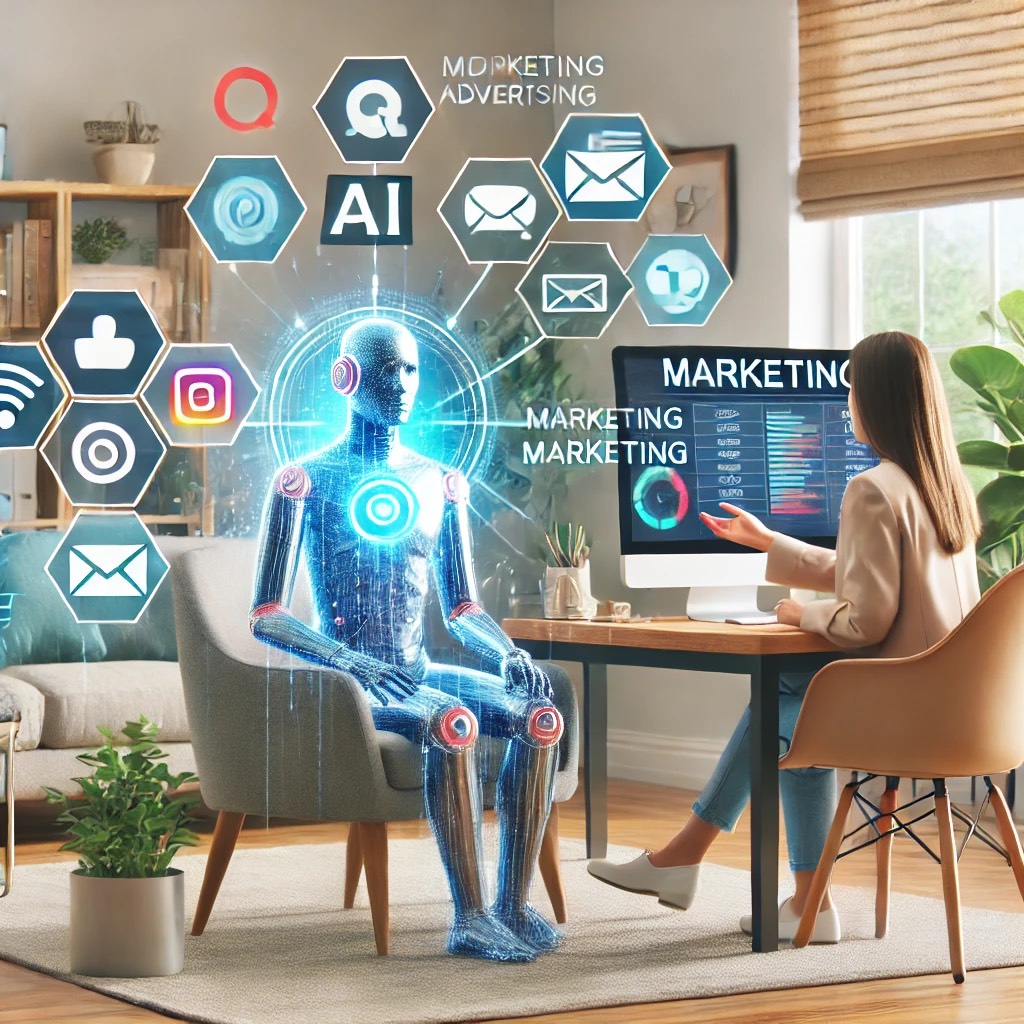As a therapist, staying ahead in the digital marketing landscape is crucial. Artificial Intelligence (AI) offers powerful tools to enhance your marketing efforts. Here are our top five recommended AI-powered solutions that can revolutionize your therapy practice’s marketing:
Marketing for Therapists with Our Insights with Artificial Intelligence
Technical Tools: Note Taking and Text Editing
Video Content Analysis with Fathom
Fathom AI analyzes your video content, providing insights and summaries. Use it to:
- Extract key points from therapy explainer videos
- Identify trending topics in your recorded webinars
- Create compelling video descriptions for social media
Efficient Note-Taking with Mentalyc
Mentalyc’s AI assists with in-session note-taking, allowing you to:
- Focus more on your clients during sessions
- Generate comprehensive, structured session notes
- Easily identify patterns and progress over time
Polished Content with Grammarly
Grammarly’s AI proofreading ensures your written content is error-free and engaging:
- Improve your website copy and blog posts
- Enhance email communications with clients
- Refine marketing materials for a professional touch
Creative Tools to Power Marketing for Therapists
Creative Content Ideas with ChatGPT
Leverage ChatGPT for content creation:
- Generate blog post topics relevant to your therapy niche
- Develop engaging social media captions
- Create outlines for therapy-related ebooks or guides
CapCut
Use AI-powered video tools to:
- Edit videos quickly and effectively
- Use their AI text generator to create easy to read captions
- Share the videos directly to all of your platforms
Our Insights on AI Opportunities Now and Later
Embracing AI in your marketing strategy is no longer just an option—it’s becoming a necessity in our rapidly evolving digital landscape. The five AI-powered tools we’ve explored—Fathom, Mentalyc, Grammarly, ChatGPT, and CapCut—represent just the tip of the iceberg in terms of what’s possible.
By leveraging these technologies, you’re not just streamlining your marketing efforts; you’re revolutionizing the way you connect with potential clients. AI allows you to create more personalized, engaging, and impactful content while simultaneously freeing up your time to focus on what matters most—providing quality care to your clients.
However, it’s important to remember that while AI is a powerful ally, it should complement, not replace, the human touch that’s so crucial in marketing for therapists. Use these tools to enhance your marketing efficiency and reach, but always infuse your unique voice, expertise, and empathy into your messaging.
As AI continues to advance, stay curious and open to new possibilities. Regularly explore emerging AI tools and technologies that could further enhance your marketing efforts. Remember, the goal is to use AI to amplify your message and extend your reach, ultimately helping more people access the mental health support they need.
By embracing AI in your marketing strategy, you’re not just keeping up with the times—you’re positioning yourself at the forefront of the therapy field. You’re demonstrating to potential clients that you’re innovative, efficient, and committed to using every tool at your disposal to provide the best possible care.
In conclusion, AI is not just changing the game for therapy marketing—it’s creating an entirely new playing field. By integrating these AI tools into your marketing approach, you’re setting yourself up for greater visibility, engagement, and ultimately, the opportunity to help more people on their mental health journeys. The future of therapy marketing is here, and it’s powered by AI. Are you ready to supercharge your practice?
If you would like to learn more about AI tools that are empowering marketing for therapists, comment below and we will prepare our next guide with more breakthrough solutions for marketing for therapists.
To keep reading more ways to improve your marketing initiatives in the mental health space, click on our other posts.
6 Fundamental Marketing Insights for Mental Health Practices




